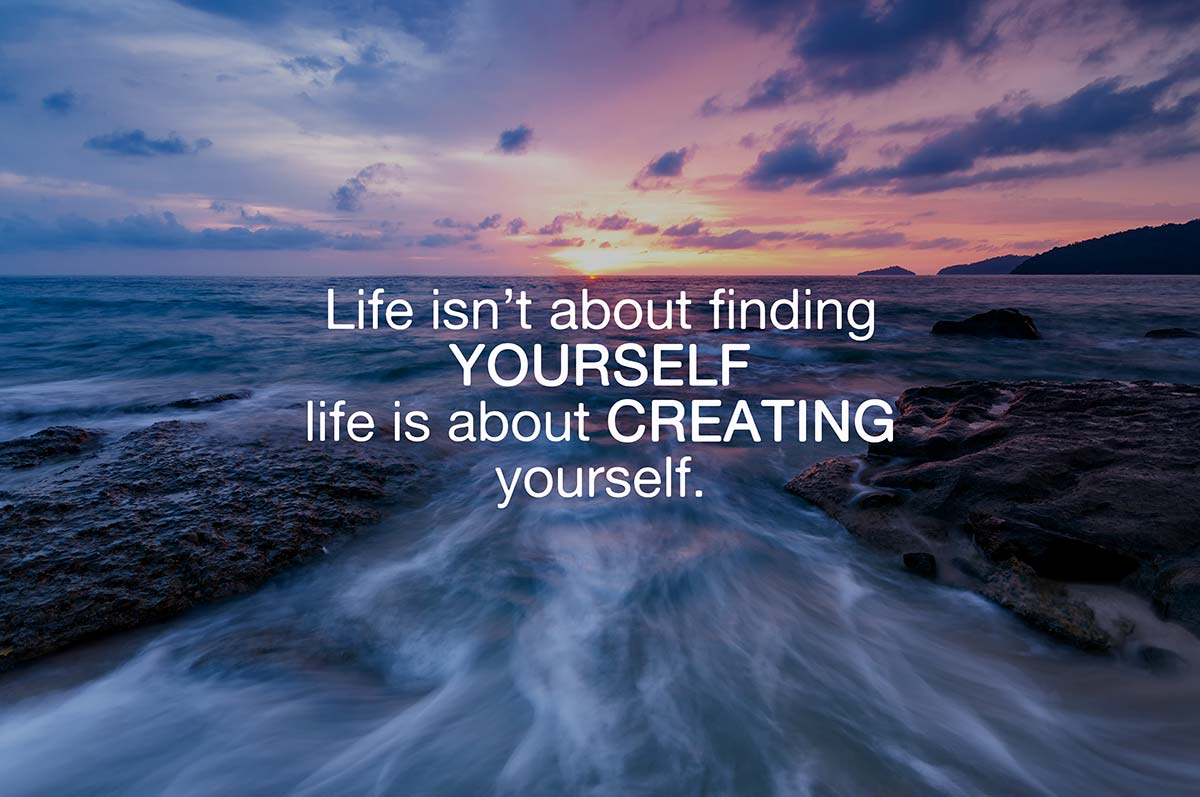Key Takeaways:
- Therapy is focused on mental health and emotional healing: Therapists help clients work through past traumas, manage mental health conditions, and build healthier relationships. The tense used is rooted in the past and present, and the structure of sessions varies depending on the modality, often with ongoing sessions.
- Life coaching focuses on personal or professional intentions or goals: Life coaches help clients identify their passions, set achievable goals, and break free from limitations and stagnation. The tense used is focused on the future, and the structure of sessions is clear and goal-oriented, often with short-term sessions.
- Choosing between therapy and life coaching requires consideration of individual needs: When deciding between therapy and life coaching, it’s essential to prioritize comfort and expertise in the respective fields. Consider factors such as your current mental health needs, desire for personal or professional growth, and potential providers’ specific credentials and coaching philosophy.
Do you need help but are unsure if a life coach or therapist is the best fit? This blog post will compare relationship coaching, life coaching, and therapy. So you can decide what is best for you. No more confusion! Let’s go!
 Introduction
Introduction
In today’s diverse landscape of personal development and emotional well-being, professional guidance is available to help individuals thrive in various aspects of their lives. From relationship coaching to career coaching, couples coaching, and specialized programs like “Conscious Uncoupling” and “Calling in the One,” a wealth of support awaits those seeking positive change. It’s essential to understand the distinctions among these approaches, as they offer unique paths to empowerment, healing, and personal growth. In this article, we’ll delve into the distinctions between different forms of guidance, with a specific focus on differentiating life coaching from therapy, exploring when each can be most beneficial for your needs.
Life Coach versus Therapist: What’s the Difference?
In the search for professional help for personal growth and emotional well-being, it can be confusing to differentiate between a life coach and a therapist. While both professionals aim to assist clients with their mental health and wellbeing concerns, their approaches and methods vary.
Life coaches specialize in personal empowerment, motivation, happiness, love, and strategies for achieving goals, while therapists focus on diagnosing, treating, and healing mental health concerns. Life coaches help clients unstick from their comfort zone, limitations, false beliefs, and unhelpful habits and find healthy alternatives with inner criticism, internal development and growth, and purpose finding. In contrast, therapists help clients deal with past hurts and trauma and navigate interpersonal relationships to heal deep emotional scars.
Clients seeking career acceleration and guidance to tap into fuller potential may choose life coaching to break unhealthy thinking patterns, behaviors, and emotional fears. Alternatively, those with more serious mental health symptoms or unresolved past traumatic experiences may require in-depth psychoanalysis and resolving relationship issues with the help of a licensed therapist.
If you are looking for professional help, it’s important to consider which approach fits best. Life coaching offers gratitude, inspiration, inner growth, greater self awareness, and motivation with accountability for program goals, while therapy techniques such as cognitive reframing and mindfulness skills seek to provide insight and lower anxiety levels to resolve deeper issues with improved mood, nourishing eating habits, and passions.
Remember, the choice between life coaching and therapy may depend on your needs, budget, and personal fit with the provider type, licensure, and credentials.
Therapy is often a time-limited, science-backed strategy that requires short-term sessions with a therapeutic alliance and clear structures over a longer period of time, while life coaching may provide package sessions and expert guidance that are focused on achieving intentions or goals in much shorter timeframes.
 The Difference between Therapy and Life Coaching
The Difference between Therapy and Life Coaching
There are significant differences between therapy and life coaching when it comes to supporting clients in achieving their goals. Therapy primarily focuses on emotional healing, providing mental health training, and diagnosing and healing past hurts. On the other hand, life coaching is about supporting clients in navigating emotions, greater self awareness, removal of limiting blocks, and accelerating progress toward their vision. While both professions support clients in making positive changes, there are differences in their coaching philosophies, with coaches often inspiring clients to take action and providing homework and assignments to help them achieve meaningful progress.
Though life coaches may have expertise in presenting addressing???? problems such as depression and OCD, they focus more on helping clients move past stuckness, limitations, or stagnation, whereas therapists work to heal emotional wounds. A life coach may benefit those seeking self-improvement or personal growth.
Pro Tip: When seeking a therapist or a coach, review coaching philosophies and ensure that the professional you select aligns with your values and mindset.
 Exploring the Differences between Life Coaching and Therapy
Exploring the Differences between Life Coaching and Therapy
Life Coaching
- Focuses on achieving goals and clarifying purpose
- Not equipped to deal with severe mental health conditions
- Motivates clients by highlighting strengths.
- It focuses on the present issue(s) that need resolving or accelerating progress in autopilot.
- The client tends to do most of the talking while the coach listens for patterns, thoughts, fears, or blocks. A life coach will use guiding questioning techniques. The client sets their own goals with minimal advice from the coach.
- No formal educational requirements as such, but completion of coursework leads to certification for practice in this area.
- Assists clients in identifying personal or professional blockages to gain clarity and progress.
- Works with couples and clients to heal, deepen, and/or grow their relationships with their partners, family members, fellow workers, and communities.
- Focuses on helping and teaching clients how to love themselves more and have more fun, joy, happiness, connection, and love in their lives.
- Utilizes visualization, relaxation techniques, goal-setting exercises, practices to identify feelings, needs, and desires, and self-care practices such as gratitude journaling.
- Typically life coaches have certifications or multiple certifications and lots of personal life experience in their areas of coaching expertise.
Therapy
- Focus on diagnosing and healing past hurts.
- Qualified to diagnose and treat various mental health conditions
- Uses science-backed strategies to address mental health challenges.
- Couples counseling, family therapy, or other specific therapy is used to uncover the root causes of problems.
- The therapist uses their expertise to guide conversations and treatments under ethical guidelines engaging listenership skills used heavily. Goals typically form together with a clear path toward achieving these outcomes.
- A valid license is required for psychotherapists, which typically requires a master’s degree in psychology, counseling or other areas.
- The main objective is to emotionally heal and get patients back on track with their daily lives.
- It avoids offering advice or prescribing treatments and medications.
Unique Details:
It’s vital to understand the contrast between life coaching vs. therapy. It offers options for people who need specific expertise in particular areas based on their unique competencies. Life coaches are motivational speakers dedicated to helping clients identify strengths and weaknesses. They then set personal or professional intentions or goals with the client’s help and guide them through steps towards progress while staying engaged with reflective listening skills. On the other hand, therapists primarily tackle mental health problems informed by scientific research methodologies professionally. Psychotherapists perform structured sessions for individuals experiencing severe mental health crises based on ethical guidelines explicitly tailored to treating different conditions.
Real-life example:
During a recent conversation with a client, I learned about their journey in seeking support for their anxiety issues. They shared how their doctor recommended exploring life coaching services as an initial step before considering other treatment options. This suggestion resonated with them, as they sought a complementary approach to increasing their well-being.
The client decided to embark on the journey of life coaching, driven by the desire to unlock their potential and navigate the challenges they were facing. They expressed how their coaching sessions became a guiding light during their emotional transition, providing valuable tools and insights to address their anxiety and navigate everyday life.
This story highlights the power of life coaching in providing guidance and support for individuals facing self imposed limitations and mental health challenges. It emphasizes the importance of considering coaching as a proactive step toward personal growth and well-being. Working with a skilled life coach allows individuals to access valuable resources and strategies to navigate their emotional journeys and experience life changing positive transformations, increased happiness and well-being, and more rewarding relationships.Skills Developed
Developed Abilities
Life coaching and therapy have different areas of focus, which prompt the development of specific abilities. Throughout life coaching, the coach aids in designing and attaining goals, personal growth, building self-confidence, and exploring one’s purpose. In contrast, therapy aims to heal past hurts and develop skills to manage mental health disorders such as anxiety or depression.
A life coach inspires their clients to accelerate their path towards happiness by identifying obstacles and false beliefs or limitations impeding their progress. The coach then uses proven methods to guide the client through a process of identifying core values, setting achievable goals, removing blockages, and tracking progress. Therapists offer specialized support that works at easing emotional pain from past experiences that are negatively affecting your present-day life while also developing coping strategies for future challenges.
Furthermore, life coaching doesn’t require licensing, excluding parts of the world where regulation exists; anyone can become a coach irrespective of educational or professional qualifications. In opposition, licensed counselors such as therapists must possess credentials permitting them to provide advice and treatment authorized by governing boards.
All types of coaching advocates for personal responsibility highlighted during each session where slightly distinct methods for achieving these responsibilities and accountability are concepts commonly featured in both disciplines. To summarize differing skills between therapies versus life coaching: the former helps an individual navigate personal battles (emotional or mental) that may have lasted years, while the latter motivates someone who has some immediate problems but desires improvement in all or certain domains within their lives.
Adding Meaningful Skills
When working with a therapist or coach, consider selecting professionals who agree with your thinking regarding personal success instances. They efficiently demonstrate competence in dealing with your unique perspective.
In other areas, like decision-making styles. Life coaches could utilize intuition more frequently than evidence-based practices when creating objectives resulting from assimilating data presented throughout sessions based on expressing goal-setting abilities; conversely, therapists depend on theory-backed interventions like Cognitive Behavioural Therapy (CBT), offering solutions rooted in empirical research.
Another thing to consider is what inspires you to take action. Coaches typically drive motivation by promoting the idea of individuals already having innate potential and focus on goals surrounding future achievement. Therapists approach treatment by dealing with present symptoms and developing ways of coping healthily with daily challenges before any goal setting comes into focus.
Tense Used
Understanding the Differences in Language Used Between Life Coaches and Therapists
Life coaches and therapists have different approaches to helping individuals reach their goals, but one of the key differences lies in their use of language.
While therapists typically use language focused on healing past traumas and addressing mental health concerns, life coaches often focus on empowering clients to create a fulfilling future.
Therapists often utilize language that focuses on past experiences, using questions such as “What was happening for you during that time?” or “How did you feel when that event occurred?”. On the other hand, coaches tend to focus on forward-thinking language such as “What can I learn from and do differently based on what didn’t work well in the past?”, “What do you want to achieve in the future?” or “What steps can you take today to work towards your goals?”
One factor that makes life coaching stand out from therapy is its action-oriented approach. Life coaches encourage clients to set specific intentions or goals for themselves, help them remove blockages, and hold them accountable for taking actionable steps toward achieving those goals. Therapists, however, are trained to address mental health concerns and offer support through counseling techniques.
It’s important to keep in mind that both professionals can be beneficial depending on what a person is looking for. A therapist is a better choice if you are struggling with trauma or severe mental health issues. But if you want guidance in creating a better life for yourself or achieving specific goals, then working with a life coach may be your best bet. Understanding the distinctions between coaching versus therapy can help people select which option will serve them best based on their unique needs.
Structure of Sessions
Sessions with a Life Coach or Therapist are Structured Differently
Regarding the Structure of Sessions, there is a clear difference between seeing a life coach versus seeing a therapist. Life coaches often take on more of an informal tone, and unlike therapists, they tend to focus on the present moment with a future looking perspective. Life coaching sessions often incorporate creative visualization and exercises.
Therapy sessions, by comparison, can be more formalized in terms of structure, with many therapists following strict guidelines for treatment plans that may include specific types of therapy, such as cognitive-behavioral therapy (CBT). In addition, therapists will often ask deeper probing questions and explore your past experiences to discover the root causes of issues.
It’s worth noting that while life coaches and therapists may have different structures in their sessions, both professions are focused on helping clients achieve growth and improve their lives overall.
While there may be some overlap in terms of goals, life coaches do not diagnose or treat mental disorders like therapists do.
Overall it’s important to understand that while these two professions have different approaches to structuring their sessions, both can offer valuable insights into improving your overall well-being.
Duration of Sessions
Sessions with a Life Coach or Therapist: What to Expect
The duration of sessions with a life coach or therapist can vary depending on the goals and needs of the client. Therapy sessions typically last between 45 and 60 minutes, while life coaching sessions may range from 30 to 90 minutes.
During therapy, individuals work with licensed therapists who specialize in addressing mental health concerns through techniques like talk therapy, cognitive-behavioral therapy, or psychotherapy. In contrast, life coaches focus more on building motivation, removing blockages and limitations, and taking action toward achieving personal and professional goals.
It’s important to note that the frequency of sessions also varies between these professions. Therapy usually involves more frequent sessions at the start, often weekly. On the other hand, life coaching frequency may vary significantly from weekley or it may require less frequent sessions following an initial assessment, typically occurring monthly depending on the clients intentions or goals..
Individuals may sometimes choose to work with a therapist and a coach simultaneously or switch between them depending on their changing needs.
For example, let’s consider Sarah’s situation. Sarah had been dealing with social anxiety stemming from past traumatic experiences, and she also desired assistance in developing healthy habits that would align with her personal goals. To address her needs comprehensively, Sarah embarked on a dual approach. She began working with a psychologist, attending weekly EMDR treatments to address the underlying trauma. Additionally, she sought the support of a life coach, engaging in bi-weekly coaching sessions focused on fostering accountability for her personal wellness journey. Through this combined effort, Sarah found the holistic support she needed to overcome her social anxiety and cultivate a more fulfilling, happier, and balanced life.
Whether you opt for therapy vs. life coaching depends on your individual needs and aligning with an expert trained in the area specific to those needs.
Finding the Right Fit
When it comes to finding the right support for personal development or wellness, there are various options available such as a life coach versus therapist. Each professional has unique training and skill sets that distinguish them from one another. Understanding the differences between life coaching and therapy is crucial before selecting the one that best suits your needs.
Life coaches focus on achieving specific goals by guiding clients through self-discovery, inner growth, and problem-solving techniques. In comparison, therapists treat mental health issues caused by past traumas or present difficulties through psychotherapy. It’s essential to determine which approach aligns with your goals and challenges.
It’s critical to remember that the life coach versus therapist comparison is not dualistic but rather complementary, and selecting one doesn’t necessarily exclude the other. Choosing a qualified coach or therapist with experience in your particular area of interest ensures success in making sustainable progress toward improving oneself.
Take advantage of an opportunity to invest in yourself fully! By understanding the difference between a life coach versus therapist, you can choose the perfect match for tailored guidance for your betterment rather than be left confused about what each offers.
 Therapy
Therapy
People seek help from mental health professionals for diverse reasons, such as depression, anxiety, personality disorders, or phobias. A therapist, also known as a psychotherapist, is a healthcare professional highly trained in treating psychological issues and disorders. They use various techniques like talk therapy, EMDR, or art therapy to help individuals understand the sources of their emotional issues and develop coping mechanisms.
A therapist assists individuals dealing with specific psychological issues or disorders, helping them find meaningful solutions and facilitating emotional healing. By exploring the past they aim to uncover the root causes of issues, redefine thought patterns and help individuals adopt healthy coping strategies.
In contrast, life coaches are not healthcare professionals but offer guidance to those seeking improvement in specific areas of their lives, like relationships, parenting, co-parenting, career, or personal growth.
It is essential to recognize that a therapist’s expertise lies in their medical training to diagnose and treat mental health issues, while a life coach has training to help individuals achieve personal intentions or goals. Both professions may have overlapping areas of expertise, making it essential to understand their differences and seek out the right professional service to match mental health or personal goals.
True story: I once had a client who was experiencing a deep sense of dissatisfaction and confusion in their career. They had initially sought the help of a therapist, hoping to find clarity and solutions. However, during our coaching sessions, it became evident that their struggle stemmed from a lack of direction and clear goals in their professional life.
Together, we embarked on a journey to uncover their true passions, strengths, and aspirations. We identified their unique skills and talents through thought-provoking conversations and targeted exercises. We then crafted a strategic plan to align their career choices with their values and ambitions.
Over time, I witnessed a remarkable transformation in my client. They gained a newfound sense of confidence, purpose, and direction. Their motivation and enthusiasm grew with each step they took toward their career goals. Witnessing them embrace their true calling and find fulfillment in their chosen path was inspiring.
Topics Covered: Mental Health and Emotional Healing
Understanding Mental Health and Emotional Healing
Mental health and emotional healing are broad topics that impact people’s lives in different ways. Recognizing the difference between therapy and life coaching is important as it affects the kind of support one can receive. While both involve working collaboratively with a trained professional to improve quality of life, they offer distinct approaches to tackling psychological issues.
Therapy sessions address mental health disorders through proper diagnosis and treatment plans tailored to individual clients. To mitigate symptoms, therapists focus on rectifying clients’ inner conflicts and past traumas. On the other hand, life coaching provides structure and guidance for individuals seeking personal and professional empowerment, empowering and supporting clients to step outside their comfort zones to make significant progress, directing clients toward their self-determined goals.
Furthermore, life coaches emphasize accountability, motivation, goal-setting, positive mindset development, self awareness, and skill acquisition to encourage long-term, transformational change with clients. They typically do not diagnose mental health issues or prescribe medication. Instead, they empower individuals by helping them develop their gifts and talents, and to move forward from a place of maximum potential.
Pro Tip: Remember that one must comprehend which service would best fit their current needs before deciding on undergoing either therapy or coaching sessions.
Skills Developed: Cognitive Reframing
Developing Cognitive Restructuring – a vital skill for personal life coaches
Life coaching puts more emphasis on helping clients achieve their goals through the releasing of negative habits and blocks, and the development of positive habits and beliefs. Personal life coaches specialize in developing cognitive restructuring for their clients. This skill involves working with a client to identify and reframe any unhelpful thought patterns that have been hindering them.
The coach works closely with the client to become more self aware, to grow, and to change their perspectives and to help them see things in a new light. They may also use techniques like visualization, meditation, and deep breathing exercises to facilitate cognitive restructuring.
A key aspect of cognitive restructuring is teaching clients how to be mindful of their thoughts and emotions. Life coaches can assist their clients in recognizing and being conscious of negative thought patterns which contribute to anxiety, depression, stagnation, self limitations, or stress. Through consistent training from a life coach, a person can take their own power back and regain control over negative thoughts before they become destructive.
Studies show that Personal life coaching can benefit those who need support while managing life changes, anxiety, or motivation, unlike therapists who work on mental health disorders, including severe ones like bipolar disorder or schizophrenia, that require therapy.
Fact: Upwards of 40% of Fortune 500 companies offer coaching services, including individual mentorship programs for executives and managers.
Tense Used: Rooted in Past and Present
The verb tense used in therapy sessions depends on the modality employed by the practitioner. Understanding that these tense variations play an integral role in the therapeutic process and are rooted in past and present experiences is essential. The therapy session’s tense usage varies across modalities and depends on each session’s goal.
A life coach uses present tense oriented toward goal setting, while therapists employ a mix of tenses to address unresolved past issues.
The modalities’ structures lend themselves to their respective goals; therefore, they require specific approaches in verb tense usage. In coaching, the structure is built around current and future intentions or goals, so it primarily relies on the present and future tense. On the other hand, therapy focuses on both unresolved past issues and current problems. It employs a mixture of tenses to delve into different aspects of a person’s life.
It’s also crucial to note that therapists have proper training and required licensing to practice, while anyone can become a life coach without legal accreditation working with certified coaches can be an important selection criteria. Coaching cannot replace therapy for individuals suffering from mental health disorders.
To get the most out of your sessions with your therapist or coach, it’s essential to choose who you work with precisely based on your needs. If you need mental health treatment or have a medical condition requiring diagnosis or medication management, consult a licensed therapist for treatment recommendations rather than settling for coaching services.
To make the best use of your time with a coach or therapist:
- Set clear, achievable goals and expectations before starting your sessions.
- Be honest and vulnerable about what you’re struggling with while still being open-minded.
- Listen carefully to what your practitioner has to say without preconceived notions.
- Try adhering to any suggested exercises/homework to ensure progress towards set goals.
- Regularly communicate any concerns or difficulties you may face throughout the process.
Structure of Sessions: Varies Depending on Modality
Sessions in therapy or coaching vary depending on the modality used. The structure of therapy sessions is unique to each practitioner, while coaching sessions typically have a more defined structure with agreed upon intentions and goals.
The structure of therapy sessions depends on the therapist’s approach and the client’s needs. Some therapists prefer an open-ended conversation, while others use a structured approach with specific activities or exercises to help their clients achieve therapeutic goals. On the other hand, coaching sessions are generally more structured and goal-oriented. Coaches often follow a specific framework or agenda for each session that focuses uniquely on how best to helptheir clients identify and achieve their desired outcomes.
It’s essential to note that both life coaches and therapists have distinct roles in supporting individuals through various challenges. A life coach focuses on helping individuals set goals, create strategies, and then to achieve them while providing feedback, accountability, and support throughout the process.
Certain details differentiate life coaching from therapy; For instance, life coaching tends to be future-focused, while therapy is about resolving past issues that affect you today. Therapy involves exploring deep-rooted issues and emotions, while coaching looks more at negative patterns and doesn’t typically require that deep exploration.
A client approached a life coach as he was struggling with work-life balance. After having several conversations with his coach, he realized that deeper personal beliefs were causing him trouble balancing work and family time. The coach utilized visualization techniques daily for ten minutes for approximately four weeks with his client till he identified clear goals for himself and gained insight into his personal beliefs, which they subsequently worked on improving together in the following weeks.
Duration of Sessions: Often Ongoing
Unlike therapists, life coaches don’t typically diagnose mental health disorders or treat them clinically. Instead, they work to enhance clients’ lives by setting and achieving specific goals. When it comes to the duration of sessions, therapy is not limited by time, whereas coaching is generally ongoing only until intentions or goals are achieved..
Life coaching can last from a few sessions to several months or years, depending on the client’s needs and desires to reach established outcomes. Unlike therapy which involves delving into past events and traumas, life coaches generally focus more on the present and future, guiding clients in areas such as personal development, removing limitations or blockages, or career advancement.
It’s important to note that while both professions involve talking through clients’ problems and helping them work towards their goals, they do so in different ways. Evaluating what each profession offers is essential before deciding on how one might best suit your needs.
When deciding between a coach or therapist and a life coach, it’s important to conduct thorough research to make an informed choice. Additionally, it can be fruitful to identify precisely what you’re looking for help with before contacting either professional; this will enable you to maximize the benefits of your sessions by ensuring you find a good match based on your unique situation.
Finding the Right Fit: Prioritize Comfort and Expertise
Choosing the right fit between a life coach and a therapist is vital to prioritize your comfort and expertise. A professional life coach focuses on empowering individuals to achieve their intentions or goals, while therapy primarily deals with mental health issues.
Understanding the difference between life coaching and therapy is critical since it can affect your decision about which expert you seek help from. Life coaching is focused on intentions, goals and solutions, whereas therapy delves deeper into emotions, experiences, and past traumas.
Moreover, while therapists are licensed healthcare professionals, most life coaches don’t require formal training or certification in their field. The National Association of Certified Life Coaches offers certification programs that maintain industry standards.
If you’re still unsure whether you need a life coach or therapist, understand that seeking help from either professional can significantly change the trajectory of your personal and professional growth. Don’t underestimate the value of an unbiased, trained professional who can offer insight and guidance.
Fear of missing out shouldn’t be what drives us towards seeking guidance from a coach or therapist, as it’s all about your feelings, needs, desires, and dreams. Remember to prioritize yourself when making this decision and be confident knowing you’re taking the necessary steps for self-improvement. Choose wisely!
 Life Coaching
Life Coaching
Life coaching involves assisting individuals in achieving their personal or professional goals. Unlike therapy, it focuses on identifying obstacles and developing strategies and perspectives for improvement rather than treating mental health issues. A life coach may specialize in areas such as career, relationships, careers, parenting, co-parenting, family, or personal development. They work with clients to set achievable intentions or goals, teach them new skills and tools, hold them accountable, and provide support and guidance.
Essentially, a life coach is not a therapist, nor do they offer mental health counseling. While a therapist is a licensed mental health professional that diagnoses and treats mental health conditions, a life coach does not require any specific certification or training. Their role is to help clients overcome barriers, and false beliefs, and make positive changes in their lives.
What sets life coaching apart from therapy is the focus on personal growth and improvement and achieving intentions and goals rather than treating mental health conditions. While a therapist may help a person understand their past experiences and emotions, a life coach helps them move forward and make changes in their current situation.
True story: Sarah had been seeing a therapist to address past traumas and work through emotional challenges. While therapy was helpful in understanding her past experiences, Sarah felt stuck in her current situation and lacked the confidence to pursue her career goals. Seeking a different approach, she decided to work with a life coach who specialized in personal growth and career development. Through life coaching, Sarah gained the support and guidance she needed to overcome her self-doubt, set clear goals, and take actionable steps toward her dream career. The focus on empowerment and making positive changes in the present helped Sarah move forward and achieve the confidence and success she had always desired.
Topics Covered: Personal or Professional Goals
Personal and Professional Goals in Life Coaching
Life coaching is a process that helps individuals achieve personal or professional goals. It enables them to gain clarity, identify their strengths and weaknesses, overcome their weaknesses, and create a roadmap to success. Life coaching caters to those who want to improve their lives and achieve their desired outcomes.
A life coach helps individuals identify their life priorities, develop needed skills and capacities, and develop an action plan tailored to their specific needs. Personal goals may include work-life balance, self-confidence, relationships, stress management, personal growth, and many more. On the other hand, professional goals may consist of career advancement, job satisfaction, leadership skills, communication skills, time management, life balance, and so on.
Life coaching differs from therapy as it primarily focuses on the present rather than addressing past traumas or psychological issues. In contrast, therapists deal with mental health disorders such as anxiety or depression through diagnostic processes based on evidence-based therapeutic interventions.
It is important to note that life coaches are not therapists and do not provide medical care for clients suffering from mental illness. If you are struggling with persistent symptoms associated with mental illness, it’s essential that you speak with a licensed therapist or psychologist who can help navigate your concerns.
Don’t miss out on reaching your fullest potential and creating a life you love – consult with a certified life coach today for support!
 As a seasoned coach, I’ve witnessed firsthand the incredible transformations that can occur when individuals harness the power of life coaching. While life coaching is primarily associated with personal empowerment, motivation, and goal attainment, it’s important to realize that its scope extends far beyond the individual journey. My practice is dedicated to offering guidance in various specialized areas, each meticulously tailored to address specific needs:
As a seasoned coach, I’ve witnessed firsthand the incredible transformations that can occur when individuals harness the power of life coaching. While life coaching is primarily associated with personal empowerment, motivation, and goal attainment, it’s important to realize that its scope extends far beyond the individual journey. My practice is dedicated to offering guidance in various specialized areas, each meticulously tailored to address specific needs:
Relationship Coaching
My expertise in relationship coaching revolves around nurturing and enhancing interpersonal connections. Whether it’s romantic partnerships, familial relationships, or platonic bonds, I’m here to empower individuals and couples to build healthier, more gratifying connections.
Career Coaching
Career coaching plays a pivotal role in helping individuals bring their professional aspirations to fruition. I’m deeply committed to assisting clients in unlocking their full career potential, improving performance, and navigating the intricacies of the job market.
Couples Coaching
The dynamics of romantic relationships are a focal point of my couples coaching services. I work closely with couples to cultivate effective communication, resolve conflicts, and rediscover intimacy, ultimately fostering stronger and more loving partnerships.
Conscious Uncoupling
In collaboration with the groundbreaking work of Katherine Woodward Thomas, my expertise in “Conscious Uncoupling” guides couples through the challenging terrain of amicable separation and divorce. I’m dedicated to supporting couples in parting ways with respect, minimizing emotional upheaval, and prioritizing personal growth during this transitional phase.
Calling in the One
“Calling in the One” is a transformative program I offer to help individuals attract and nurture meaningful romantic relationships. Through my coaching, clients break free from unhelpful patterns and beliefs, creating the space for love and genuine connection to flourish.
In the realm of life coaching, my guidance spans these diverse areas, equipping clients with invaluable tools and strategies for personal growth, empowerment, and the achievement of their unique goals. It’s essential to grasp the distinctions between these coaching domains and therapeutic approaches, empowering individuals to make informed choices on their journey toward a brighter, more fulfilling future.
Skills Developed: Setting and Achieving Goals
Assessing one’s ability to set and achieve your intentions or goals is an essential life skill that is vital to individual success. This skill falls under the heading of ‘Skills Developed: Setting and Achieving Goals.’ Understanding the differences between a life coach and a therapist is important when incorporating goal setting into treatment plans.
- Coaches help clients set SMART (specific, measurable, achievable, relevant, time-bound) goals for personal or professional growth.
- Coaches are not trained to diagnose mental health disorders.
- Coaches can offer clients support, guidance, new skills and capacities, and accountability as they work towards their goals.
- Therapists may address underlying emotional or behavioral issues before implementing goal-setting techniques.
- Therapy often involves exploring past traumas and experiences, while coaching focuses on present actions toward future goals.
Unique to life coaching is its forward-thinking approach, where therapists may have a more exploratory past-focused aim. Coaches encourage clients to create actionable steps to achieve desired outcomes, while therapists generally provide ongoing support and insights specific to each individual’s style of processing emotions.
True story: Tom faced a challenging period in his life when he lost his job and grappled with self-esteem issues. Seeking support, he turned to a therapist who helped him navigate the emotional impact of the termination and address underlying concerns and lack of confidence. Together, they explored his past experiences and emotions, working towards healing and building resilience. As Tom began to regain his confidence, he recognized the need to focus on his career goals. He decided to enlist the help of a coach who specialized in career development. The coach guided him in creating a personalized action plan, leveraging his skills and strengths to explore new career opportunities and rebuild his confidence. With the coach’s encouragement and support, Tom thrived in pursuing his career aspirations while continuing his therapy sessions to delve deeper into the emotional wounds caused by his job loss. This combined approach allowed Tom to achieve professional success and find inner healing and growth.
Tense Used: Focused on the Future
Focusing on the Future: The Distinct Differences between Life Coaching and Therapy
When comparing life coaching and therapy, it’s important to note that both serve as instruments of guidance. However, they have different approaches. While therapy primarily addresses past traumas and negative emotions, life coaching focuses on helping clients achieve future intentions or goals.
Life coaches help individuals identify their ambitions and construct an actionable plan to accomplish them. This includes but is not limited to improving communication skills, enhancing problem-solving abilities, time management, motivation, and accountability. In contrast, therapists concentrate on past experiences that affect daily behavior patterns.
It’s worth noting that there are distinctions in the scope of practice between a therapist and a life coach. Although some coaches know about mental health practices or employ cognitive-behavioral techniques in their approach, licensed therapists typically hold higher degrees in psychology or counseling to provide customized care for specific mental conditions like anxiety or depression.
In summary, as both services target a particular need for self-improvement, it is safe to say they should be used in conjunction with one another rather than replacing therapy with coaching or vice versa.
Take advantage of the potential growth you deserve. Find your distinct journey towards personal development by exploring the amazing opportunities provided by both therapy and coaching practices today!
Structure of Sessions: Clear and Goal-Oriented
Sessions with a life coach or therapist are designed to be structured and goal-oriented. Both professionals use a framework that enables clients to identify their goals and work towards achieving them. Life coaching tends to have more focus on present and future intentions or goals. In contrast, therapy has a tendency toward examining past behaviors or experiences. The structure of sessions with both professionals is usually regular. However, therapists require deeper trust and secure attachment when working with sensitive cases.
Life coaches tend to be more straightforward in their communication style than therapists. They will ask direct questions and expect the client to answer them. The responses help clients identify their values, strengths, weaknesses, and obstacles. Through this knowledge, life coaches help clients learn new skills and capacities, set realistic intentions or goals that can be achieved within a set timeline. On the other hand, therapists come from more reflective listening skills that are rooted in empathy rather than directionality.
It’s essential to note that therapy requires specialized training in human behavior and mental health conditions. Most states require a license for individuals to practice therapeutic counseling legally. Life coaching only recently started becoming licensed but doesn’t necessarily hold explicit accreditation requirements for individuals who practice this service.
Duration of Sessions: Often Short-Term
Sessions with a Life Coach or Therapist are often short-term, lasting from one to a few months. These sessions focus on helping individuals make necessary changes and set goals for their personal or professional life.
Life coaches offer short-term sessions focused on specific intentions or goals, while therapists provide sessions to resolve long-standing emotional issues. Coaching is most effective when individuals need help achieving measurable objectives, while therapy is more suited for a wide range of emotional problems.
It’s important to note that these professions have different core principles and educational backgrounds, though some overlap does exist. A therapist holds clinical training and has obtained a degree in psychology or psychotherapy, which qualifies them to provide clinical services. On the other hand, an aspiring life coach can obtain certification through various training programs and educational pathways.
If you decide to work with a Life Coach, it is important to conduct thorough research and choose a professional who has experience and expertise in the specific area you are seeking to improve. Find someone you trust and feel comfortable working with and who has valid certifications. Having clear communication during your sessions will also aid in achieving your desired results.
Ultimately, both approaches can provide value based on your individual needs. A therapist can help resolve deeper issues that may take long-term solutions, while coaching can assist in making measurable changes quickly. Understanding the difference between the two is essential before deciding which one is right for you.
Finding the Right Fit: Credentials and Coaching Philosophy
Choosing the Right Match: Qualifications and Coaching Philosophy
When considering whether to seek the guidance of a coach or therapist, qualifications and coaching philosophy play a vital role in finding the right fit. Coaching philosophy differs from therapy, focusing on achieving defined goals through self-discovery and personal development rather than delving into past traumas. While therapists generally hold advanced degrees in psychology or counseling, coaches may have certification from specific organizations or none at all. Therefore, it’s essential to research potential coaches’ or therapists’ credentials and approaches before deciding.
In addition to credentials and coaching philosophy, factors such as communication style, pricing options, and availability should also be considered when selecting a coach or therapist. Establishing rapport with your coach or therapist before starting any sessions is crucial to ensure that you’ll get maximum benefits from their services.
Did you know that many life coaching professionals are not licensed therapists? According to Forbes, while licensing requirements vary by state, those who practice therapy require licensure to meet ethical standards upheld by state boards.
However, anyone can call themselves a coach without having any specific education or training. This underscores the importance of researching potential life coaches’ qualifications, their certifications, and coaching philosophy before hiring them.
 Choosing Between Therapy and Life Coaching
Choosing Between Therapy and Life Coaching
When Deciding Between a Life Coach or Therapist, It’s Essential to Know the Differences.
Life coaches can help you set and achieve life intentions, goals and challenges. Therapists focus on addressing past trauma and mental health concerns. While therapy is designed to help individuals recover from emotional pain and psychological disorders, coaching is intended to help people identify and achieve personal goals. Both approaches offer different benefits to individuals seeking support. Understanding how they differ can help you choose the best fit for you.
Hiring a life coach involves working with a trained professional who helps you develop and implement strategies for achieving specific intentions and goals in your life. The two approaches differ significantly in terms of methodology. Coaching concentrates on action and forward movement, while therapy looks back and works through past experiences. They work with the client’s present and future, focusing on motivation and encouragement. Therapists, however, focus on analyzing and healing mental health issues related to one’s past.
It’s also essential to note that life coaching cannot address serious mental health issues like clinical depression or bipolar disorder, which require medical treatment. In contrast, therapy is expressly designed to treat mental health issues. While therapists are trained medical professionals, life coaches are not licensed or trained in diagnosing or treating mental health problems.
There are many differences between life coaching and therapy, but both are intended to help individuals improve their lives. The history of coaching can be traced back to ancient Greece. It can involve a variety of approaches, including personal development, executive, business, and wellness coaching. On the other hand, therapy has its roots in psychology, with the primary focus being healing mental health problems.
 Conclusion
Conclusion
Understanding the Variances: Life Coaching vs. Therapy
Life coaching and therapy are two different approaches to mental well-being. While they share some similarities, they are fundamentally different in their scope and objectives. Life coaching helps individuals achieve their personal and professional intentions and goals, while therapy addresses and treats mental health issues. Although they may overlap, seeking the appropriate professional for your needs is essential.
Life coaching may help individuals in all aspects of their lives, including finances, careers, and relationships. When considering the difference between a life coach and a therapist, it is essential to understand what each profession entails. A life coach works with clients to develop actionable plans and strategies to reach their intentions and goals, while a therapist focuses on the client’s mental health, past experiences, and emotional well-being. Therapy focuses more on addressing specific mental disorders such as anxiety, depression, and trauma.
 It is essential to note that both life coaching and therapy can be beneficial, but they are not interchangeable. Evaluating your needs and seeking the appropriate professional to help you is crucial. If you need support in reaching your intentions and goals and improving your overall life satisfaction, a life coach may be your best fit. A therapist may be the best option if you need help addressing specific mental health concerns.
It is essential to note that both life coaching and therapy can be beneficial, but they are not interchangeable. Evaluating your needs and seeking the appropriate professional to help you is crucial. If you need support in reaching your intentions and goals and improving your overall life satisfaction, a life coach may be your best fit. A therapist may be the best option if you need help addressing specific mental health concerns.
Don’t let uncertainty hold you back; seek support from a professional to enhance your life. Determine which professional is best suited to address your needs and take action to improve your mental well-being.
If you’re on a personal journey and looking for support and guidance, I invite you to explore the transformative possibilities of life coaching. As a certified life coach, I, Greg Wheeler, am here to assist you in unlocking your potential, gaining valuable insights, and navigating the various aspects of your life. Together, we can embark on a path toward personal growth and a brighter future.
Life coaching offers a unique opportunity to delve deeper into your goals, challenges, and aspirations. Through our coaching sessions, we will work collaboratively to uncover your strengths, resolve weaknesses, explore new perspectives, learn new skills and capacities, personal growth, and develop strategies that align with your vision for a fulfilling life. With a warm and empathetic approach, I am dedicated to providing you with a supportive and non-judgmental space where you can freely express yourself and grow.
By investing in life coaching, you are taking a proactive step toward positive change. Through our partnership, I will provide you with the tools and resources necessary to overcome obstacles, tap into your inner potential, and navigate the complexities of life with confidence. Together, we will navigate this transformative journey and help you achieve the personal growth and fulfillment you desire.
To embark on this empowering journey, I invite you to contact me and schedule an initial free 30+ minute coaching consultation with my coaching practice. Let’s take that first step together towards a brighter future.
Five Facts About Life Coach vs. Therapist: Understanding the Differences:
- ✅ Life coaches focus on intention and goal-setting and motivation, while therapists focus on healing and resolving psychological issues. (Source: Psychology Today)
- ✅ Therapists are typically licensed mental health professionals, while life coaches have no licensing requirements. (Source: Verywell Mind)
- ✅ Life coaches typically have a shorter-term, results-oriented approach, while therapy may involve a longer-term process of exploration and self-discovery. (Source: Forbes)
- ✅ Life coaching is often considered a more forward-looking and action-oriented collaborative process, while therapy may involve more reflection on past experiences and emotions. (Source: The Muse)
- ✅ Both life coaches and therapists can help achieve personal growth and improve well-being. Still, the appropriate choice may depend on individual needs and goals. (Source: Healthline)
FAQs about Life Coach Vs. Therapist: Understanding The Differences
Is a life coach a therapist?
No, a life coach is not a therapist. While a therapist typically works with individuals with mental health issues or emotional problems, a life coach works with individuals looking to make positive changes in their personal or professional lives. Coaching is focused on intention and goal-setting, action planning, personal growth, and accountability rather than diagnosing and treating mental health issues.
What is the difference between a life coach and a therapist?
The primary difference between a life coach and a therapist is the focus of their work. A life coach is focused on helping clients achieve specific intentions and goals and make positive changes in their lives, while a therapist is focused on diagnosing and treating mental health issues and emotional problems.
What does a life coach do?
Life coaching is focused on personal and professional development rather than mental health treatment. A life coach helps clients identify their intentions, goals, and develop an action plan to achieve those goals. They provide support, encouragement, teaching, and accountability throughout the process, helping clients overcome obstacles and stay on track as they work toward their desired outcomes.
What is life coaching?
Life coaching is a personal and professional development service that helps individuals make positive life changes. Coaching is focused on creating positive change and achieving specific outcomes rather than diagnosing or treating mental health issues. Coaches work with clients to identify their intentions, goals, develop a plan of action, and provide support and accountability as they work toward those intentions and goals.
What’s a life coach?
A life coach is a professional who provides personal and professional development services. They work with clients to help them achieve specific intentions and goals and make positive life changes. Coaches provide support, guidance, and accountability throughout the process, helping clients overcome obstacles and stay on track as they work toward their desired outcomes.
What is the difference between coaching and counseling?
The primary difference between coaching and counseling is the focus of their work. Coaching is not meant to replace mental health treatment but rather to provide support and guidance in personal and professional development areas. Counseling is focused on diagnosing and treating mental health issues and emotional problems, while coaching is focused on creating positive change and achieving specific outcomes.



